Imran Khan is considered one of the greatest persons of the modern age in the league of amazing gentlemen with extraordinary accomplishments outside the field of cricket. The long hair, endearing looks, brisk stride to the crease, gazelle-like leap, and projectile swerving around the naive bat that was undoubtedly heading for the base of the stumps were all impressive.
26 years ago, 10,000 kilometers from his home, in Melbourne, he got up the microphone and gave a stirring speech at the conclusion of what was possibly the greatest fairy tale in cricket history. His plummy voice and his way with words would later make him the prime minister of his country.
| Born: 5 October 1952 | Nationality: Pakistan |
| Years Active: (1971-1992) | Birth Place: Lahore, Pakistan |
| Height: 6ft 2in | Role: All-rounder |
| Batting Style: Right-handed | Bowling Style: Right-arm fast |
| Nickname: Kaptaan |
He is the brother of four sisters and the only son of engineer Ikramullah Khan Niazi and his wife Shaukat Khanum. His family has lived in Mianwali, Northwest Punjab for a long time.
Like his cousins, Javed Burki and Majid Khan, Khan's maternal family has produced many cricket players, some of whom have represented Pakistan. For about 600 years, Basti Danishmanda, Jalandhar, India served as the home of his maternal family.
At the age of 16, Khan made his debut in cricket in Lahore. He was playing for his hometown Lahore A (1969–70), Lahore B (1969–70), and Lahore Greens (1970–71). He played cricket for the University of Oxford's Blues team from 1973 to 1975.
He returned to the Pakistan team in 1976 after receiving his degree from Oxford and managed to secure a berth for himself. At the height of his powers at age 30, he racked up a mind-blowing 62 wickets in 9 Test matches at an average of 13.29, the lowest ever in a calendar year for over 50 wickets. He did this by swinging quickly and against the seam.
At the peak of his career, in 1982, he succeeded Javed Miandad as captain of the Pakistan cricket team. Imran was a charismatic leader who combined his intelligence and strength with a classy and refined demeanor to motivate his team to achieve the seemingly impossible. As captain, Khan participated in 48 Test matches, of which Pakistan won 14, lost 8, and drew 26. Additionally, he participated in 139 ODIs, winning 77, losing 57, and finishing one tie.
The crouching tigers of Pakistan appeared to be headed for victory following a dismal start to the tournament and a few unlucky rain-marred games. Imran Khan grabbed the last wicket on the day of the World Cup final at the Melbourne Cricket Ground, and he later emerged as the symbol of the victory by speaking up on the podium and giving a stirring speech as World Champions Pakistan basked in the glory of their fairy tale ending.
In 75 Tests, Khan secured 3000 runs and 300 wickets, the second-fastest record behind Ian Botham's 72, to complete the all-rounder’s triples.
Additionally, with a batting average of 61.86, he ranks second all-time among Test batsmen who bat at position 6 in the batting order. He played for Pakistan against Sri Lanka in the nation's final Test at Faisalabad in January 1992.
Khan was a pioneer of the reverse swing bowling style. The bowling team of Wasim Akram and Waqar Younis, who eventually mastered and made use of this technique, received instruction from him on how to do so.
He was the fourth bowler in the world and the first Pakistani to take 362 wickets in Test cricket. His best performance was a 102 not out. His best bowling performance in an ODI inning in a losing cause was 6 wickets for 14 runs, which set a record for the best bowling stats by any bowler.
In June 1971 in Edgbaston, Khan played his first Test cricket against England. After 3 years he made his ODI debut, in August 1974, against England at Trent Bridge for the Prudential Trophy.
He represented Worcestershire in English county cricket from 1971 to 1976. Khan also represented Dawood Industries (1975–1976) and Pakistan International Airlines during this ten-year period (1975–1976 to 1980–1981). He played for Sussex from 1983 until 1988.
He visited the West Indies after the Australian series and met Tony Greig there, who recruited him for Kerry Packer's World Series Cricket. He finished third at 139.7 km/h in a fast bowling competition in Perth in 1978, solidifying his reputation as one of the quickest bowlers in the world.
Six months after playing his final one-day international against England in Melbourne, Australia's 1992 World Cup final, Khan announced his definitive retirement from cricket. With 88 Test matches, 126 innings, and 3807 runs at an average of 37.69, including six centuries and 18 fifties, he finished his career.

Imran Khan is without a doubt the best cricketer to have represented Pakistan, and his brilliance goes beyond mere numbers. Imran Khan's character inspired and motivated the entire country.
| ODI | |
|---|---|
| Matches: 175 | Run Scored: 3709 |
| Batting Average: 33.41 | Top Score: 102 |
| 100/50: 1/19 | Wickets: 182 |
| T20 | |
|---|---|
| Matches: 93 | Run Scored: 8032 |
| Batting Average: 57.78 | Top Score: 365 |
| 100/50: 26/30 | Wickets: 235 |
| Test | |
|---|---|
| Matches: 88 | Run Scored: 3807 |
| Batting Average: 37.69 | Top Score: 136 |
| 100/50: 6/18 | Wickets: 362 |
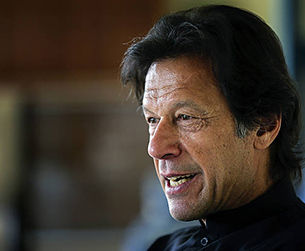
Sachin lifting the World Cup Trophy after winning it in 2011.
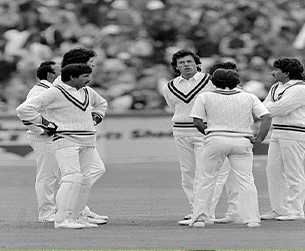
Sachin lifting the World Cup Trophy after winning it in 2011.
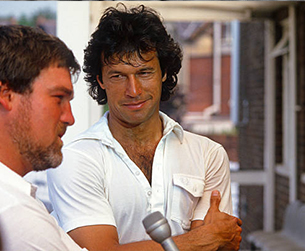
Sachin lifting the World Cup Trophy after winning it in 2011.
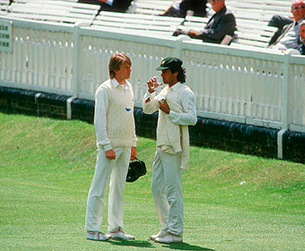
Sachin lifting the World Cup Trophy after winning it in 2011.
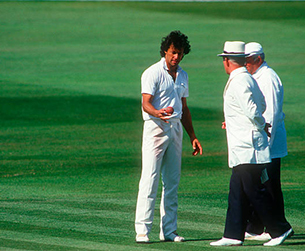
Sachin lifting the World Cup Trophy after winning it in 2011.
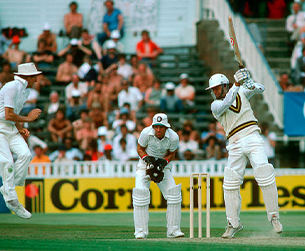
Sachin lifting the World Cup Trophy after winning it in 2011.